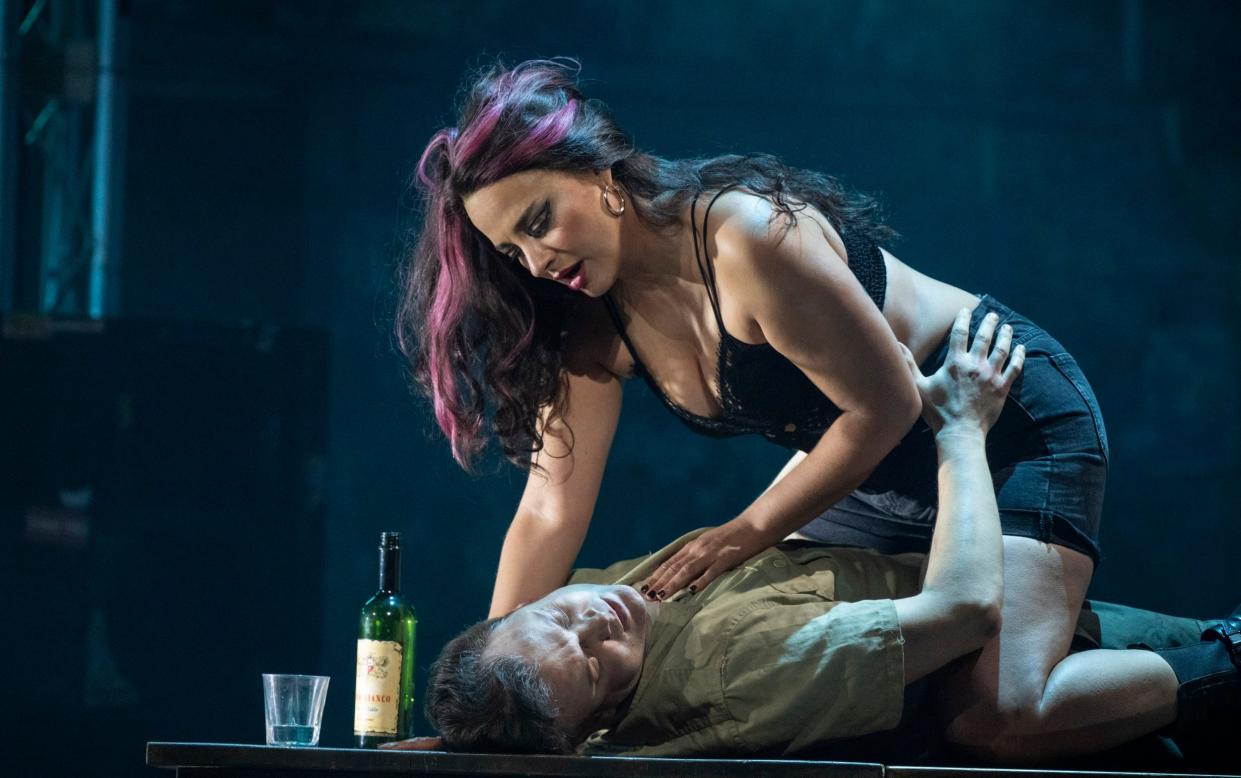Carmen: Glyndebourne returns with a gritty drama of sex and death

- Oops!Something went wrong.Please try again later.
Ever powerful, ever contemporary, ever real, Bizet’s Carmen of 1875 remains one of the world’s most popular operas, open to an infinite number of re-thinkings. In today’s turbulent society, is it a moral tale of female freedom, or a bleak story of the price of passion? Or is this opera’s continued attraction really just down to a few of the greatest tunes ever written?
This biting, if not yet fully realised, new production for Glyndebourne by Diane Paulus of the American Repertory Theater, like the far less effective one at Covent Garden earlier this year, wrenches the piece into the present and presents it as a basic struggle for women’s autonomy in the face of male oppression. In Riccardo Hernández’s vivid sets, with Evie Gurney’s casual up-to-date costumes, their confinement is literal, as the girls of the cigarette factory have no more than a metal cage to emerge into on their work breaks, to be ogled at by the military and an exceptionally well-drilled childrens’ chorus. In Act II, they can cut free in the dances of Lillas Pasta’s punk club (here a luridly neon-lit dive), and on the scaffolding of Act IV they can both watch the bullfight and overlook the final conflict between Carmen and Don José which ends in her death.
Rihab Chaieb’s Carmen is warm, unusually light-hearted, beautifully sung, with an ample tone but ideal focus; she has a natural extroversion and flashing eyes that make her flirtatiousness natural, and she is an obvious target for Don José’s passion. José is sung with a strong, vibrant tone by the Ukranian tenor Dmytro Popov, outstanding in his Act II aria, drawn inexorably into Carmen’s dark web; Sofia Pomina’s Micaëla, to whom he is engaged, doesn’t stand a chance in this company, and though she sings touchingly is no more than a cipher in the story.
The audience favourite is Dmitry Cheblykov as the toreador Escamillo, whose copious attractions include an astonishing body-builder’s physique and a crisply incisive delivery. Absolutely outstanding in the smaller roles is Elisabeth Boudreault’s tiny, bright-toned Frasquita, who with Kezia Bienek’s fine Mercédès, is faithful to Carmen to the end. At the close, José’s self-anger at the feelings that consume him boils over. With Carmen dead, the women and the girls gather round him threateningly; he will be lucky to get out of there alive.
Paulus’s responsive way with the text is complemented by conductor Robin Ticciati’s outstanding treatment of Bizet’s music, drawing out its transparency and incisiveness to the full, with the London Philharmonic highlighting pizzicato strings, flecks of woodwind colour, and the crisp, edgy dance rhythms that permeate the superb scoring. I was more taken with Jasmin Vardimon’s angular choreography in Act IV than with its mad table-hugging in Act II, and indeed this act needs some overall tightening, while the smugglers’ lair of Act III seems as superfluous to the central tale as ever.
Until June 17, then Aug 1-24 with a second cast. and semi-staged at the BBC Proms on Aug 29; glyndebourne.com

